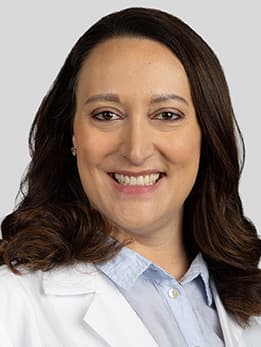Multiple Sclerosis (MS)

Multiple Sclerosis Program
Neurologists at the University of Chicago Medicine Multiple Sclerosis Program are dedicated to improving the quality of life for people with multiple sclerosis (MS). Our doctors have helped to develop many of the life-transforming treatments currently used to treat MS. We have a distinguished record of providing definitive diagnoses and comprehensive treatments to help patients manage their symptoms and to limit flare-ups and progression of the disease. Our multidisciplinary team will determine the best treatment for symptoms of MS for every patient.
Schedule an Appointment with an MS Expert
What is Multiple Sclerosis?
Multiple sclerosis is a chronic, autoimmune disease of the brain and spinal cord. While the exact cause is not known, we do know that MS causes a person's white blood cells to attack their myelin, the insulator of nerve fibers in the brain. This attack damages brain cells and interrupts nerve impulses that travel to and from the brain and spinal cord. Symptoms — often unpredictable and erratic — range from mild to severe, affect different parts of the brain, vary by patient and can often be treated.
Common Multiple Sclerosis Symptoms
- Changes in memory, thinking or concentration
- Vision problems such as blurred vision, eye pain, vision loss or difficulty seeing colors
- Slurred speech
- Fatigue
- Movement issues, including balance problems and difficulty walking
- Progressive leg weakness
- Numbness, tingling or spastic movements
- Problems with bowel, bladder and sexual function
- Trigeminal neuralgia, a condition that causes sudden, severe facial pain
6 Myths About Multiple Sclerosis. Multiple sclerosis, also known as MS, is a disease where the body's immune system attacks the protective coating around nerves. This can cause symptoms that include numbness, weakness, or vision problems.
Myth. MS only affects young, white women. Fact. Although Ms is three times more common in women, it can also affect men and people from all racial groups.
Myth. MS does not affect Black Americans. Fact. Not only can Black Americans develop MS, but studies suggest that Black American women have the highest incidence of MS.
Myth. It's difficult for people with MS to get pregnant. Fact. While MS does not reduce fertility, it's important for people with MS to consult with a doctor when planning pregnancy, as some MS medications are not recommended for use during pregnancy.
Myth. Pregnancy and menopause have no impact on MS. Fact. Pregnancy may reduce MS flares, while menopause can worsen them. That's because hormonal changes play a key role in MS symptom patterns. Ask your doctor how to anticipate and manage these changes.
Myth. People with MS can't breastfeed. Fact. Breastfeeding is beneficial for your baby, and there's no way your baby can catch MS. Breastfeeding may even reduce risk of postpartum relapse. But MS medications may not be safe for nursing, so consult your doctor.
Myth. If you have MS, your children will too. Fact. Most children of parents with MS will not develop the disease, but they are at an increased risk. While MS does have a genetic component, environmental factors also play a role.
Learn more at UChicagoMedicine.org.
Why Choose UChicago Medicine for Multiple Sclerosis Care?
- We offer definitive diagnoses and treatment plans for each course of MS to help manage your symptoms and limit flare-ups and progression of the disease.
- We understand the different symptoms of MS and which treatment option is best for each. Through a collaborative approach, our neurologists will work with other specialists to create a personalized care plan that addresses all your needs.
- Our experts conduct cutting-edge MS research and integrate the latest therapies and medications into their treatment plans to offer the most advanced and comprehensive care available. Our patients have access to new MS treatments that are not widely available.
- UChicago Medicine is recognized as a Partner in MS Care and a Center for Comprehensive Care by the National Multiple Sclerosis Society for providing exceptional, multidisciplinary care for people with multiple sclerosis.
- UChicago Medicine is recognized as a WASOG Sarcoidosis Center of Excellence, signifying a multidisciplinary team of specialized medical and paramedical professionals operating within a dedicated facility that has demonstrated long-term sustainability. This recognition highlights our leadership in providing best practices, conducting research and offering support and training for sarcoidosis patients and professionals.
Meet Our Multiple Sclerosis Team
Convenient Locations for Multiple Sclerosis Care
Debunking six myths about multiple sclerosis
A UChicago Medicine neurologist explains why some things you've always heard about multiple sclerosis aren't true.






